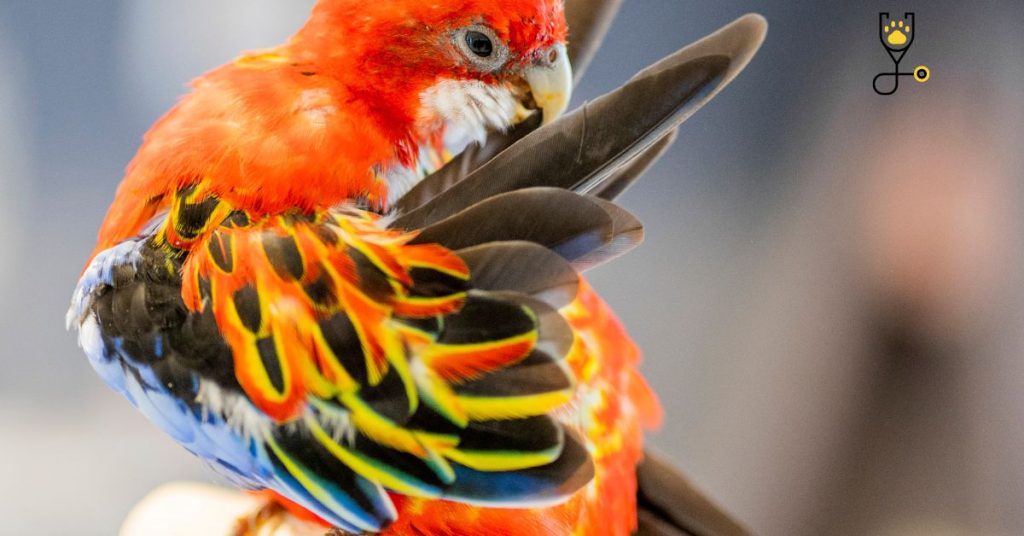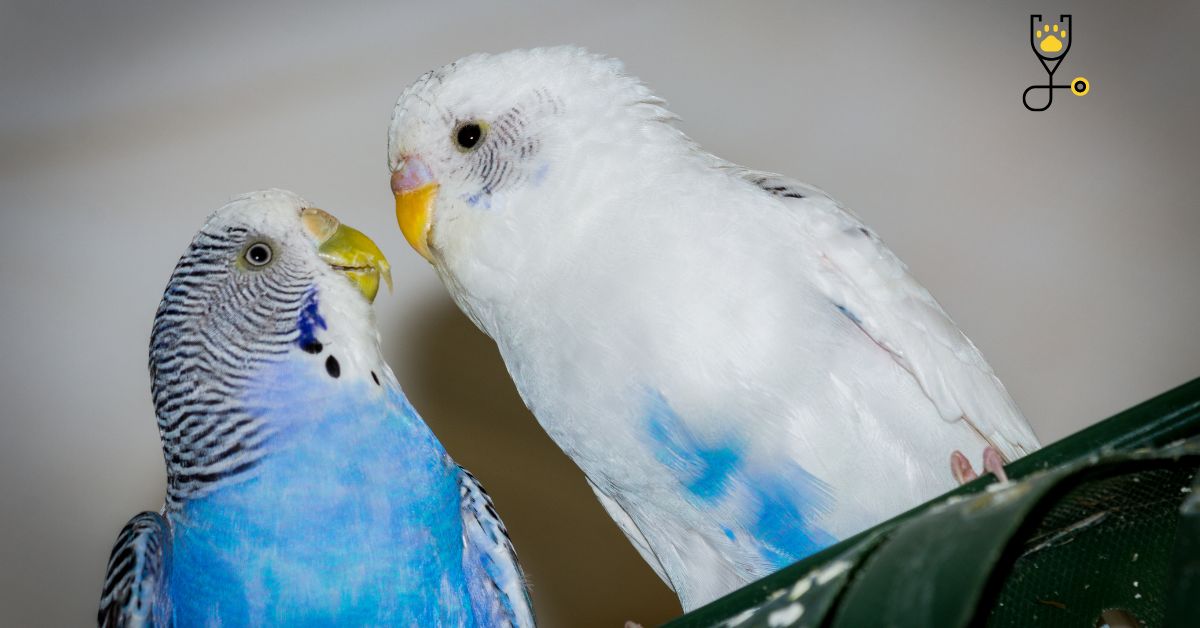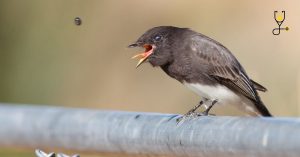Are you the proud owner of a pet bird? If so, you know that pet birds have unique personalities and behaviors and that having one as part of your family can be a wonderful and rewarding experience. But not all behavior from our feathered friends is welcomed! While our feathered friends might love singing, chirping, or dancing to their favorite tunes – certain behaviors may lead to frustration and discontent if left unchecked. In this blog post, we’re going to look at some common behavioral problems with pet birds that could be disruptive both emotionally and physically – helping create a more peaceful home environment for everyone involved.
1. Aggression
Aggressive behavior from pet birds can present itself in a variety of ways, including biting, lunging and flapping wings. It is generally caused by fear or stress and can be addressed by providing a safe environment with plenty of activities to entertain your feathered friend.
2. Chewing
Pet birds love to chew! This desire can lead to the destruction of furniture and other items if not properly monitored. Providing plenty of appropriate toys and treats will help keep your bird busy while also satisfying its need to chew on something.
3. Plucking Feathers
When feeling anxious, some birds engage in feather plucking as a way to cope with the stress they are experiencing emotionally or physically. Providing more attention, a healthy diet, and lots of environmental enrichment can help reduce the behavior.
Read more: 10 Reasons Why Do Birds Pluck Their Feathers?

4. Screaming
Pet birds may scream for a variety of reasons, but the most common is to get attention from the humans in the house. To reduce this behavior, try distracting your bird with new toys or feeding them treats when they’re quiet.
Also read: Reasons Why Is Your Pet Bird Screaming?
5. Refusing To Step Up
If a pet bird refuses to step up onto their perch or your hand, it could be because they’re feeling scared or intimidated. Providing plenty of positive reinforcement and offering rewards each time they do step up will help create better habits over time.
6. Inappropriate Bonding
Some birds become overly attached to one person in particular, leading to jealousy and possessive behavior when others are around. Allowing the bird time with other people in the house and providing plenty of activities can help even out the bond and reduce any negative behaviors.
7. Escape Attempts
Pet birds may try to escape from their cage for a variety of reasons, including boredom or wanting attention. Providing plenty of toys, and playtime outside the cage during supervised times and addressing any underlying health issues will help prevent escape attempts.
8. Excessive Vocalization
Parrots may vocalize excessively if they’re feeling neglected or bored, so it’s important to provide them with plenty of activities and attention throughout the day. Playing music or talking in a calm voice can also provide some relief from the incessant chattering.
9. Hormonal Changes
Hormonal changes can lead to a variety of behaviors in pet birds, especially during mating season. Providing plenty of toys and activities to keep them occupied will help reduce any negative hormones that might be causing disruptive behavior.

10. Night Frights
Pet birds may experience night frights due to loud noises or sudden movements in the dark. To prevent this fear-based response, try placing a blanket over their cage at night or installing red light bulbs in the room they’re sleeping in both of which can help create a more peaceful environment for your feathered friend.
11. Boredom
Pet birds require plenty of stimulation throughout the day, so if they become bored, it can result in destructive behaviors or excessive vocalization. Keeping their cage stocked with various toys and providing supervised playtime outside the cage is a great way to keep your feathered friend entertained and happy.
12. Territoriality
Some birds may become territorial of their cages or the area around them, leading to aggressive behavior such as lunging or biting when another person enters the space. Providing plenty of attention and reducing any feelings of being threatened by regularly introducing new people will help reduce any negative reactions.
13. Picky Eating Habits
Pet birds may develop picky eating habits due to boredom or lack of variety in their diet. To prevent this from happening, try offering a mix of fresh fruits and vegetables, along with seeds and pellets. Keeping the meals interesting with new flavors and textures will help encourage your feathered friend to explore different foods.
14. Lack of Socialization
Pet birds that don’t receive enough socialization can become shy or withdrawn, making it difficult for them to interact with other people or animals in their environment. Taking the time to introduce your bird to new people and situations on a regular basis will help them develop healthy social skills over time.

15. Excessive Grooming
Many pet birds have an instinctive need to preen themselves, but if they start to groom excessively it could be a sign of stress or boredom. Providing plenty of interactive toys and activities will help keep them occupied and reduce any feelings of anxiety.
Treatment
For each of these behaviors will vary depending on the underlying cause, so it’s important to consult with your avian veterinarian when dealing with any disruptive behaviors in pet birds. With patience and understanding, you can help your feathered friend learn how to behave appropriately, and even create better habits over time. With a little bit of love and care, you can create a happy and healthy environment for your pet bird.
Also learn to: Train Your Bird to Be More Friendly
Conclusion
Birds are unique creatures with their own set of behaviors that can sometimes be challenging to understand. Fortunately, by understanding the underlying causes behind certain behaviors, you can help create a safe and comfortable environment for your pet bird. With time and patience, it’s possible to manage any disruptive or destructive behaviors in birds with the right strategies and treatments. By being aware of the common behavioral issues that pet birds experience and taking the necessary steps to address them, you can ensure that your feathered friend is happy, healthy, and well-behaved.
Frequently asked questions
Q: What are the most common behavioral issues in pet birds?
A: The most common behavioral issues in pet birds include excessive vocalization, aggression, night frights, boredom, territoriality, picky eating habits, lack of socialization, and excessive grooming.
Q: How can I address these behaviors in my pet bird?
A: The best way to address these behaviors is to consult with your avian veterinarian and provide plenty of time and attention. Additionally, providing a stimulating environment with plenty of toys and activities, introducing new people and situations regularly, offering variety in the diet, and creating a peaceful sleeping environment can all help reduce any disruptive or destructive behaviors in pet birds.
Q: Is it possible to manage behavioral issues in pet birds?
A: Yes, with time and patience, it is possible to help your pet bird learn how to behave appropriately and create better habits over time. By understanding the underlying causes behind their behaviors and taking the necessary steps to address them, you can ensure that your feathered friend is happy and healthy.
Q: What should I do if my pet bird is displaying aggressive behavior?
A: If your pet bird is displaying aggressive behavior, it’s important to try and identify the cause so you can address it appropriately. To help reduce any feelings of aggression, make sure to provide plenty of interactive toys and activities, create a peaceful sleeping environment, and introduce your bird to new people and situations on a regular basis. Additionally, it’s important to consult with your avian veterinarian for advice on how to best handle the situation.
Q: What are some tips for helping my pet bird develop healthy social skills?
A: Taking the time to introduce your bird to new people and situations on a regular basis is essential for helping them develop healthy social skills. Additionally, providing plenty of interactive toys and activities, offering variety in the diet, and creating a peaceful sleeping environment can all help create a safe and comfortable environment for your pet bird. With patience and understanding, you can help your feathered friend learn how to behave appropriately and even create better habits over time.








